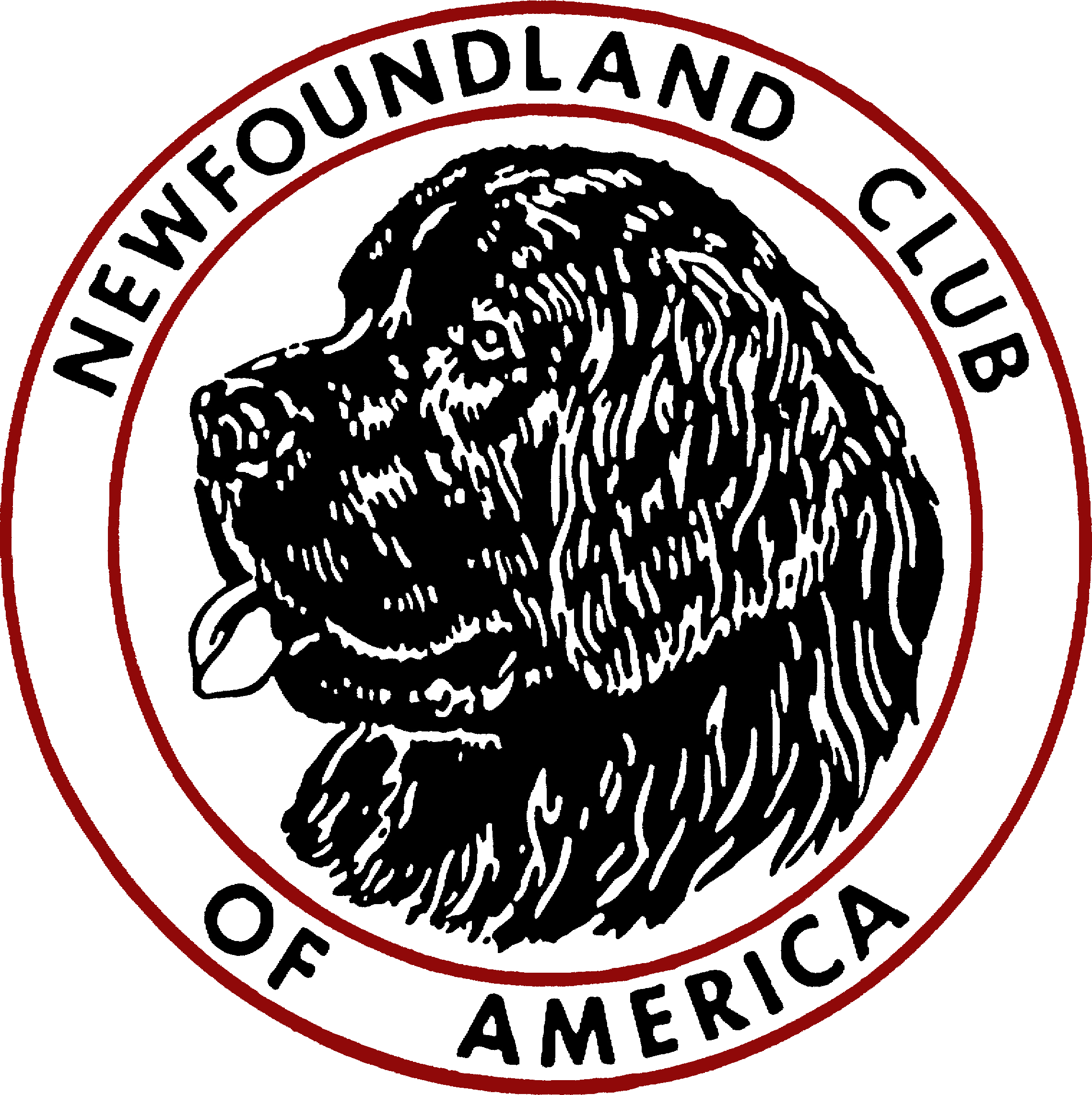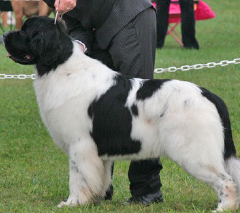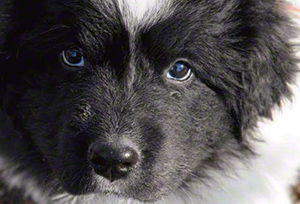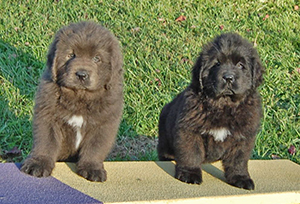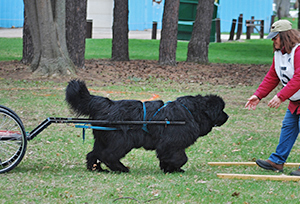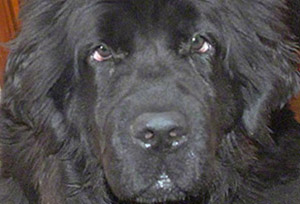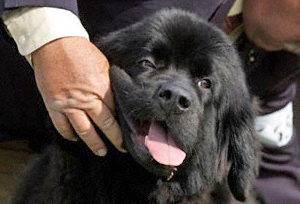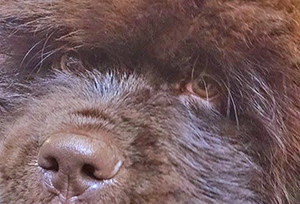Breed Snapshot
The Newfoundland is a large, heavily boned, powerful dog, strong enough to pull a drowning man from rough seas. The dog's appearance is both huggable and impressive. When moving, a Newfoundland gives the impression of effortless power. A Newfoundland's soft expression reflects its benevolent and dignified temperament.
Size
Weight:
Males 130-150 pounds
Females 100-120 pounds
Height at Withers:
Males 28 inches
Females 26 inches
Overview
The Newfoundland Dog originated in the Canadian Province whose name he bears. Working alongside fishermen, he is renown as a water rescue dog. Their strength and size make Newfoundlands excellent draft dogs and they were used to haul fish to market. They love to be near their families, and are usually kept as house dogs. The Newfoundland Dog is a strong, active working dog with a sweet temperament and gentle demeanor.
Adult Newfoundlands
Black Newfoundland |
Gray Newfoundland |
Brown |
White and Black Newfoundland |
Coat
Medium length double coat
Colors:
Black, White and Black (Landseer),
Brown, and Gray
Requires regular grooming and bathing
Health
Lifespan: more than 50% of Newfoundlands live to be more than 10 years old.
Major Health Issues:
Hip and Elbow Dysplasia
Cardiac Disorders (SAS, PDA, DCM)
Bloat
Cruciate Ligament Rupture
Allergies
Skin Problems
Laryngeal Paralysis
data from OFA Breed Health Survey 2022
